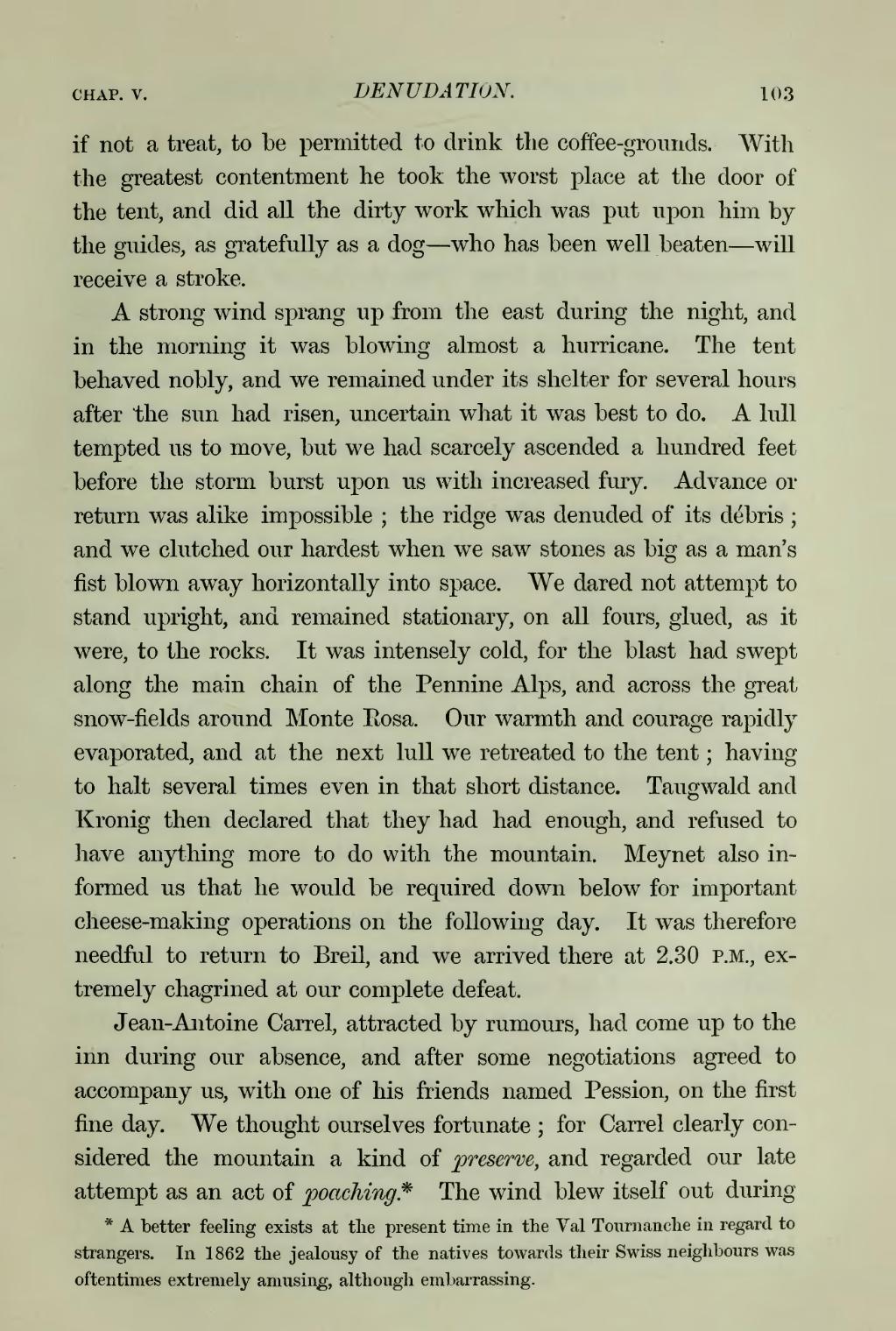if not a treat, to be permitted to drink the coffee-grounds. With the greatest contentment he took the worst place at the door of the tent, and did all the dirty work which was put upon him by the guides, as gratefully as a dog—who has been well beaten—will receive a stroke.
A strong wind sprang up from the east during the night, and in the morning it was blowing almost a hurricane. The tent behaved nobly, and we remained under its shelter for several hours after the sun had risen, uncertain what it was best to do. A lull tempted us to move, but we had scarcely ascended a hundred feet before the storm burst upon us with increased fury. Advance or return was alike impossible; the ridge was denuded of its débris; and we clutched our hardest when we saw stones as big as a man's fist blown away horizontally into space. We dared not attempt to stand upright, and remained stationary, on all fours, glued, as it were, to the rocks. It was intensely cold, for the blast had swept along the main chain of the Pennine Alps, and across the great snow-fields around Monte Rosa. Our warmth and courage rapidly evaporated, and at the next lull we retreated to the tent; having to halt several times even in that short distance. Taugwald and Kronig then declared that they had had enough, and refused to have anything more to do with the mountain. Meynet also informed us that he would be required down below for important cheese-making operations on the following day. It was therefore needful to return to Breil, and we arrived there at 2.30 p.m., extremely chagrined at our complete defeat.
Jean-Antoine Carrel, attracted by rumours, had come up to the inn during our absence, and after some negotiations agreed to accompany us, with one of his friends named Pession, on the first fine day. We thought ourselves fortunate; for Carrel clearly considered the mountain a kind of preserve, and regarded our late attempt as an act of poaching.[1] The wind blew itself out during
- ↑ A better feeling exists at the present time in the Val Tournanche in regard to strangers. In 1862 the jealousy of the natives towards their Swiss neighbours was oftentimes extremely amusing, although embarrassing.

